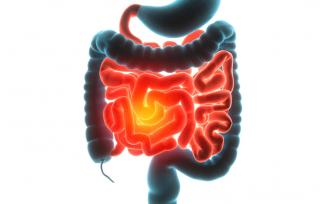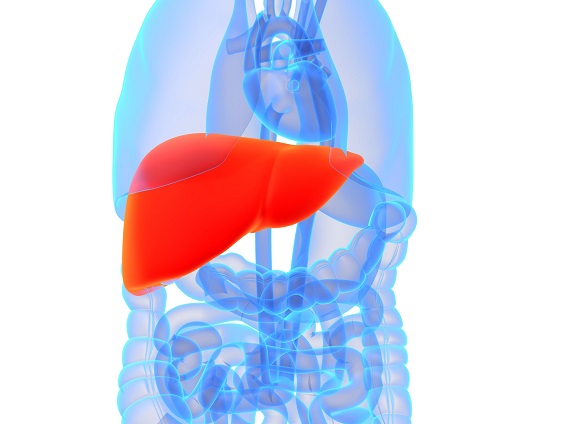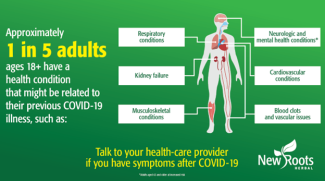Related Articles
- 29 Jan 21
After iron, zinc is the most abundant element in the human body, with approximately 2 to 4 g distributed among the muscles (60%), bones (20%), liver, and skin. Given its abundance, concerns about zinc deficiency is often overlooked; however, as discussed in this article, certain populations and individuals may benefit from supplementation.
- 04 Sep 21
It’s a serious disease shrouded in controversy that captivates our attention. A disease transmitted by a blood-feeding bug that already bit an animal, such as a mouse or other mammal, infected with the spirochaete bacteria Borrelia burgdorferi. It is this pathogen, which has profound effects throughout the body, which is the cause of Lyme disease.
- 02 Oct 14

One of the most common yet stubborn illnesses many of us are plagued with are respiratory infections, most commonly acute bronchitis, and pneumonia. Not only are they disruptive and painful to deal with at the time of the infection, but it is also typical for someone to experience lingering effects of the infection for weeks after. - 06 Sep 16
- 22 Sep 20
It was only a matter of time before a formal human clinical study supported the countless appeals from the scientific community to administer vitamin D to patients with COVID‑19. Just completed, the results confirm what previous study correlations proposed: Vitamin D, particularly safe and accessible to all, delivers resounding health benefits.
- 18 Sep 18
When it comes to women’s cervical health, the Pap test, also known as a Pap smear, is significantly important in reducing the incidence of cervical cancer.[1]
- 22 Jan 18
You may have felt it already: the runny nose, the sore throat, that embarrassing cough. Or perhaps you’ve taken the day off work because you’ve spiked a fever, felt achy all over, and are so tired you don’t want to get out of bed. Cold and flu season is in full swing. While your local drugstore is full of conventional and natural treatment options aimed at reducing the symptoms of colds and flu, this article summarizes research that supports going back to basics in terms of nutrition and proper hygiene to help....
- 26 Feb 21
 In conditions that promote a leaky gut, the compounds of the food bolus that are usually kept safely in the intestinal lumina—including undigested food macromolecules, toxins, bacteria, or parts of bacteria known as endotoxins—has now the potential to pass through the fragile and unicellular mucosal membrane of the small intestine, and to reach the blood circulation.
In conditions that promote a leaky gut, the compounds of the food bolus that are usually kept safely in the intestinal lumina—including undigested food macromolecules, toxins, bacteria, or parts of bacteria known as endotoxins—has now the potential to pass through the fragile and unicellular mucosal membrane of the small intestine, and to reach the blood circulation. - 07 Jan 22
For centuries, mushrooms have been foraged and added to soups and stews for their robust nutritional profile. Fungi are much smarter than we think for what simple organisms they are.
- 22 Dec 15
Prions refer to abnormal pathogens that are transmissible and cause problems in the brain. Transmissible spongiform encephalopathies are a group of diseases associated with the protease-resistant protein (PrP). The exact function of PrP is unknown, although it is thought to be involved in the transport of copper into cells, neuroprotection and neuronal communication.
- 11 Mar 16
- 17 Oct 19
 A cough is one of the most common reasons people visit their doctor. Coughs are annoying, they’re loud and can disrupt sleep for an entire household. With most viral infections, a cough can stick around up to 2 weeks after the infection has cleared. But when a cough lasts longer than 8 weeks, it warrants further investigation.[1]
A cough is one of the most common reasons people visit their doctor. Coughs are annoying, they’re loud and can disrupt sleep for an entire household. With most viral infections, a cough can stick around up to 2 weeks after the infection has cleared. But when a cough lasts longer than 8 weeks, it warrants further investigation.[1] - 26 Feb 21
According to Tolstoy, patience and time are the most powerful warriors. When it comes to the pandemic, they certainly seem to have been important allies. The time for vaccines has finally arrived. However, we have also been told to not let our guard down. Vaccines are not the only secure gateway, and encompassing a healthy lifestyle is still needed for effective herd immunity and to protect ourselves and our loved ones
- 18 Sep 18
The urinary tract is part of the excretory system that removes wastes and unnecessary metabolites from the body to maintain homeostasis and biochemical balance. Made up of the kidneys, ureters, bladder, and urethra, the urinary tract is perceived to be sterile, except for the urethra.
- 18 Mar 19
Cold weather drives humans indoors, which means we endure each other’s bacteria, viruses, and other pathogens more frequently.
- 26 Jul 18
Every organ in the body has a unique and essential role in maintaining balance in the body. The harmony that is created when they all work well together can really energize us—but can equally deplete us when offset. The liver is an integral part of health and serves as a crossroads between many systems of the body.
- 17 May 18
A fairly common but often underrecognized condition I encounter as a naturopathic doctor is “chronic yeast infection”; something you may have heard of. It is also sometimes called Candida overgrowth syndrome (COS). This condition can manifest through a variety of mild, systemic, nonspecific symptoms, which may go unexplained and untreated for months or even years at a time for many patients.
- 13 Apr 20
The World Health Organization declared COVID-19 a global pandemic on March 11. As of March 31, 2020, the coronavirus had rapidly spread to more than 850,000 people in 202 countries and caused ca. 42,000 deaths. Coronavirus new cases and death toll are increasing exponentially.
- 01 Oct 22
There is a tidal wave of post‑COVID conditions hitting us. According to Health Canada, if you are still experiencing physical or psychological symptoms more than 12 weeks after getting COVID‑19, you suffer from a post–COVID‑19 condition (also known as “long COVID”).
- 14 Nov 19
A miscarriage is defined as a pregnancy loss occurring during the first 20 weeks of pregnancy. An early pregnancy loss is defined as a pregnancy loss that occurs during gestational weeks 0–12 (the first trimester). About 15–20% of pregnancies end in pregnancy loss, with the majority—approximately 80%—occurring in the first trimester. Early pregnancy loss is most commonly caused by fetal chromosomal abnormalities.[1]
Newsletter
Most Popular
- 08 Jan 15
- 07 May 15
- 17 Jun 13
- 17 Jun 13
- 17 Jun 13
- 01 Jul 13
- 17 Jun 13
- 17 Jun 13
- 17 Jun 13
- 01 Jul 13
- 17 Jun 13
- 17 Jun 13
- 17 Jun 13
- 01 Jul 13





































